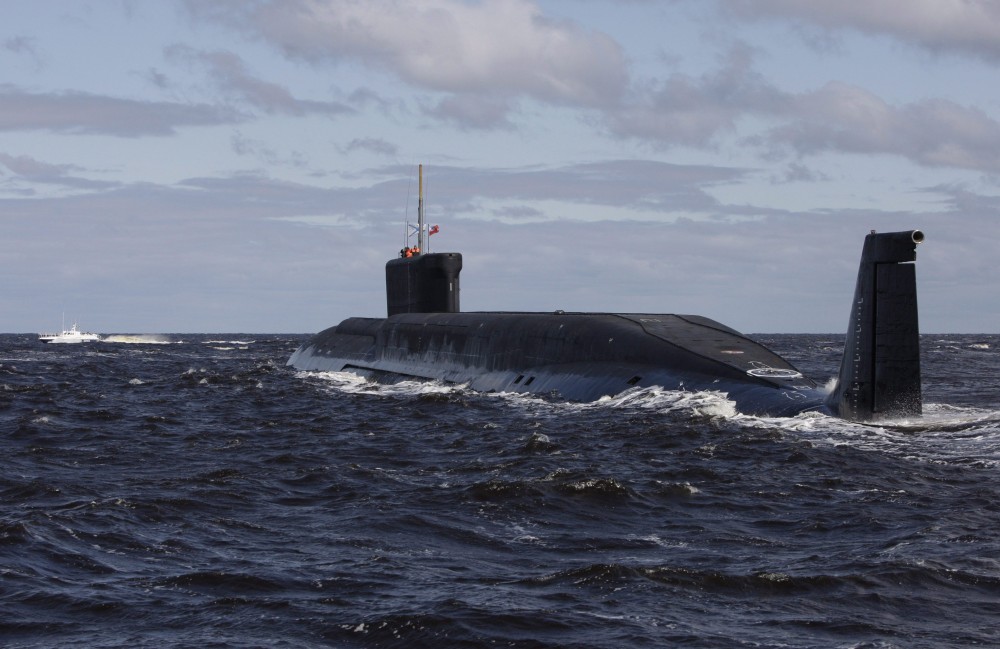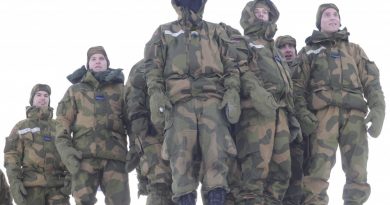Russia to attempt world record nuclear missile salvo

Russia’s Northern Fleet is preparing to test the combat readiness of its nuclear deterrence forces by firing a salvo of 16 intercontinental ballistic missiles (ICBMs) from a submerged position in Arctic waters – a drill that has not been attempted in 25 years, Russian media reports.
Two of Russia’s newest strategic nuclear submarines are ready to leave for the Barents Sea, where one of them is expected to attempt the highly complex and dangerous salvo launch. The Northern Fleet plans to repeat the Soviet military operation “Behemoth,” Izvestiya writes.
The two Borey-class submarines “Yury Dolgoruky” and “Vladimir Monomakh” are ready to conduct the exercise, but only one of them will be launching all of its 16 Bulava (Mace) missiles in one salvo, the newspaper writes.
The planned launch is not mentioned on official military websites, and news agency TASS wrote last week that the salvo will only consist of two missiles, not 16.
Borey-class submarines are the main element of the naval part of Russia’ nuclear triad. Capable of carrying 16 Bulava missiles, each with six to ten nuclear warheads, they can stay hidden under the Arctic ice cap and reach targets more than 9000 kilometers away.
Russia plans to build a total of eight such submarines. Three are already in active service, and the next four are being tested or are under different stages of construction.
“Yury Dolgoruky” has launched five Bulava missiles since 2011. All the launches have been considered to be a success. “Vladimir Monomakh” has had only one successful launch of the Bulava missile, in September 2014. An attempted two-missile salvo in November 2015 was partly successful, with one of the missiles hitting its target on Kamchatka.
The last “Behemoth” exercise was conducted by the Soviet Union in 1991. It was viewed as a possible scenario of a nuclear war against the United States and was executed to confirm the possibility and safety of a quick underwater salvo.
On August 6, 1991, the Delta-IV submarine “Novomoskovsk” performed a full salvo underwater launch, launching all 16 SS-N-23 missiles on board. The whole salvo took 3 minutes and 44 seconds, with a 14 second interval between launches. During this time the submarine expelled more than 650 tons of weight. The 1st and the 16th missiles hit their targets at Kura testing range on the Kamchatka peninsula, while the rest were self-destructed in flight, according to Wikipedia. This event is still considered to be a world record, Izvestiya writes.
As previously reported, Russia has been conducting tests with the Bulava missile since 2004. Until 2009, there were 6 failures in 13 flight tests and one failure during ground test, blamed mostly on substandard components. After a failure in December 2009, further tests were put on hold and a probe was conducted to find out the reasons for the failures. Testing was resumed one year later, and of the ten tests that have been conducted since then, only one has failed.
Related stories from around the North:
Canada: Lessons from Norway’s Russia assessment, Radio Canada International
Denmark: Nordics to step up security cooperation on perceived Russian threat, Yle News
Finland: Finland confirms 6th Russian airspace violation in just over a year, Yle News
Norway: Russia is more confident and unpredictable: Norwegian Intelligence Service, The Independent Barents Observer
Russia: New Russian spy ship to keep tabs on Norway, Barents Observer
Sweden: NATO agreement won’t bring nuclear weapons to Sweden, Radio Sweden
United States: U.S. general says Alaska military cuts not final without Arctic plan, Alaska Public Radio Network



